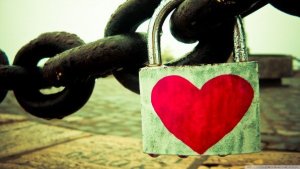5 Risks of Being Emotionally Dependent on Your Partner

One of the most self-destructive emotional traits is emotional dependency, where a person makes and develops an addiction to their partner, friend or relative.
“The wounds that are not seen are the deepest.”
-William Shakespeare-
When we are emotionally dependent, we lose our self-esteem; the treasure that makes each one of us unique and special. So today I bring you five risks generated by the emotional dependency on one of the most important aspects of our lives: our partner.
The identification and understanding of each will help you regain your self-esteem in order to make your own way and take charge of your own life, without needing to leave it to others. With this you’ll feel stronger, better, and get what we all deserve: our freedom.
1. The loss of self-esteem.
Emotional dependence generates the loss of our personal esteem which is the same as self-destruction. People who suffer from emotional dependence typically have severe self-esteem issues.
When this occurs in our relationship, we run the risk of gradually losing the person we love by being unaware of this situation or not searching for ways to overcome it.
2. It generates a loss of identity.
An emotionally dependent person is probably living in a world where their partner is the center of everything. All their actions, desires and behaviors are in accordance with what he/she wants. This situation causes us to become an extension of our partner, losing our identity, the personality that characterizes us, and generating total dependence.
In this way, we may run the risk of being physically and psychologically abused. In cases like these it is advisable to seek professional help through therapy which can help us overcome and avoid the situation.

“Remember that he who does not love you as you are doesn’t deserve you.”
-Niki Lauda-
3. Physical and psychological abuse by an intimate partner.
At some point the partner may perceive the other’s emotional dependence. This situation can lead them to take on a “dominant role” and easily take advantage of the situation.
This is a very common archetype of couples where emotional dependency is present. The person who has no emotional dependency feels free, which makes them feel entitled to exert pressure, lie, be hostile, contemptuous, and even take physical, material or psychological advantage of their “dominant” position.
What encourages this situation further? The security of the one exerting the abuse in which the dependent person probably will not complain and will support everything without question.
4. Isolation and loss of social skills.
Finding ourselves in such an unpleasant, energy-wasting situation like emotional dependence on a partner internally consumes us. Not feeling free and without strength will lead us, little by little, to isolate ourselves from our social environment with our friends and family.
This isolation also gradually encourages the loss and non-development of personal social skills. Moving ourselves away from our environment and reality invites us to be blind to our own life and unconsciously increases emotional dependency.
5. Sudden changes in mood.
Emotional dependency is a psychological disorder manifested in many different ways. The dependent person suffers from a “dysphoric mood” which are sudden mood changes throughout the day.
Suffering from this emotional state will cause a person to experience depression, stress and anxiety. All of this promotes a sense of guilt, inner emptiness, high levels of jealousy, and most of all, fear. These symptoms can only be calmed by the presence of their partner, but is paradoxically caused by their absence.
This text is provided for informational purposes only and does not replace consultation with a professional. If in doubt, consult your specialist.








